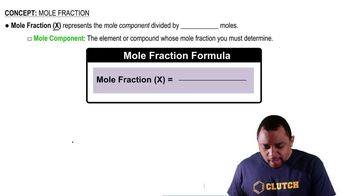Textbook Question
Name the regions of the atmosphere. What property is used
to distinguish between different regions of the atmosphere?
287
views




Pakistan's K2 is the world's second-tallest mountain, with an altitude of 28,251 ft. Its base camp, where climbers stop to acclimate, is located about 16,400 ft above sea level. (a) Approximate atmospheric pressure P at different altitudes is given by the equation P = e-h/7000, where P is in atmospheres and h is the altitude in meters. What is the approximate atmospheric pressure in mm Hg at K2 base camp?
Pakistan's K2 is the world's second-tallest mountain, with an altitude of 28,251 ft. Its base camp, where climbers stop to acclimate, is located about 16,400 ft above sea level. (c) Assuming the mole fraction of oxygen in air is 0.2095, what is the partial pressure of oxygen in mm Hg at the summit of K2?